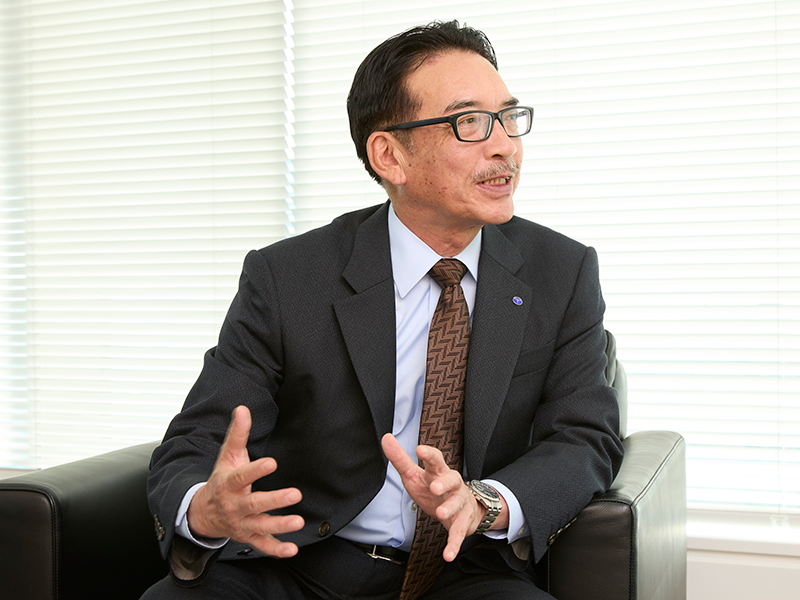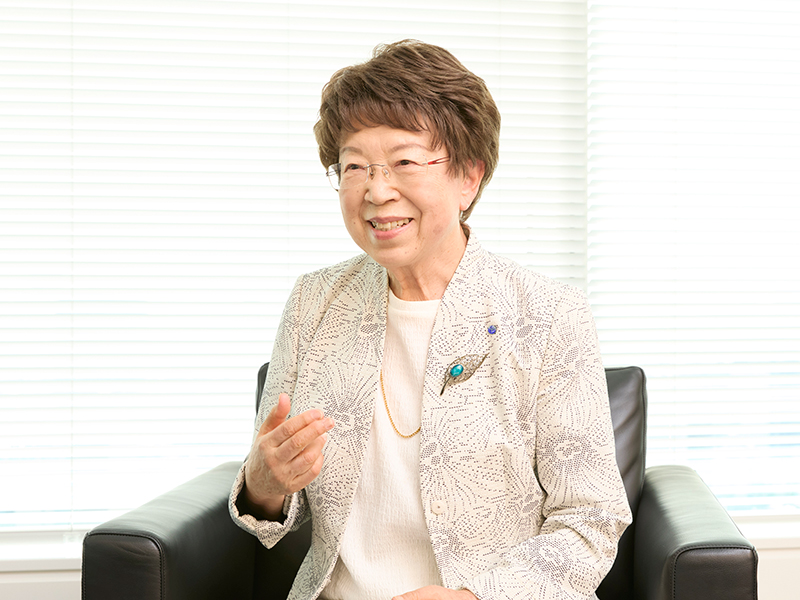Strengthening the Foundations of Global Business
through Defensive and Proactive Governance
Strengthening “Defensive” Governance through Trust
Fukami: In our global strategy, we reinforce governance from both defensive and proactive perspectives. On the defensive side, we regard bribery as the most significant risk in overseas operations. We have benefited from the advice of Director Koizumi, who has long worked as an attorney in corporate law and international transactions. As a group initiative, in January 2017 we established our Anti-Bribery Policy, and since then we have strictly enforced compliance and the prevention of violations.
Koizumi: There are countries—some where we are already operating—that require particular caution with respect to bribery. When we once considered entering a certain region, I advised the management team to exercise the utmost care. Even suspicions of bribery can result in project suspension, delays in material delivery, and other significant impacts. Regarding internal whistleblowing systems, it is also essential to enhance operations with attention to language and other considerations.
Fukami: We set up a global whistleblowing system in April 2025. From the perspective of strengthening compliance, such systems are extremely important. We are enhancing the framework for handling whistleblowing reports, including multilingual support. At our overseas bases, risk management is carried out under the “three lines of defense” concept, with the business execution unit, risk management unit, and internal audit unit each playing their roles. Together with statutory auditors, internal audit departments, and subsidiary-specific initiatives, we have built multilayered audit mechanisms.
Koizumi: That is extremely important, and our company has established the right structures.
Fukami: On the other hand, if we only focus on setting up the framework, the audit tends to become merely a formality. Both sides must avoid falling into an authoritative stance or a sense of being forced. I always emphasize that it is the communication between the auditors and the local staff, and the trust built on that basis, that makes it possible to speak up and address the issues that truly need to be raised.
“Proactive” Governance for Growth
Fukami: On the growth and proactive side, our global business aims to maximize corporate value by enhancing competitiveness and profitability, underpinned by the development of global structures and talent cultivation. In this sense, proactive governance is about managing the risks that inevitably accompany growth. Each country presents its own risks when entering new markets, but new businesses cannot be created without taking on some risk. Governance must enable us to take on challenges while minimizing risks.

Koizumi: The company discloses information on overseas entry and retreat decisions to independent directors, which ensures transparency and also places heavy responsibility on us. As an international lawyer, I routinely exchange information with overseas attorneys. When important contracts with foreign companies are brought forward, I examine them in light of each country’s latest legal and business updates. Since such information is likely to affect the choice of schemes and other transaction methods, I believe that information sharing is essential.
Fukami: In overseas M&A and contracts, even when the execution side believes internal discussions are sufficient, revisions and adjustments are often required in the final stages. To further reduce risk, I look forward to continued advice from Director Koizumi on corporate law and international business matters.

Koizumi: Entering new countries or regions involves significant risks due to differences in language, religion, law, culture and so on. At the same time, these regions may offer attractive opportunities such as high profitability or strong economic growth potential. Proactive engagement is necessary. I also try, as much as possible, to go out into the world at international conferences and interact with people from various countries. From what I have observed, companies that have successfully expanded abroad often start by building trustworthy local relationships and networks, and by steadily working from there. Even if such processes may seem indirect, I would recommend going through them as well.
Human Resources that Support Governance
Koizumi: Building communication and trust is crucial for the growth and success of global business. When I spoke with a local subsidiary president, I was impressed by their active efforts—frequently organizing gatherings and engaging closely with employees to genuinely understand their sentiments and individual circumstances, thereby strengthening mutual trust. Even when dispatching executives from Japan to overseas subsidiaries, it is vital to consciously develop and send individuals who will be trusted and respected locally.
Fukami: In observing employees dispatched overseas, I find that engineers in particular can build trust even without advanced language skills, because they convey clear technical messages grounded in their expertise. When such professional respect is combined with communication skills, they are able to demonstrate genuine leadership.
